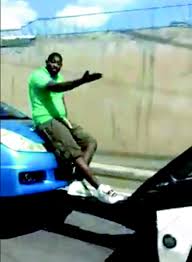
TODAY’S trending topic is the introduction of the “U-Turn System”, a fixed penalty and demerit points scheme representing the government’s latest efforts to deal with traffic violations.
Drivers, on the other hand, regularly complain about the government’s neglect for their motoring needs, such as safe roads to drive on. In this article, one of those sore points is discussed: the wrecking of vehicles.
Many drivers would agree that more planning and thought should have been put into ensuring our cities, towns and other areas of interest contained adequate parking. Car parks are limited and often full. When you do get an available spot, the parking fees can put a dent on your wallet ($8-$10 an hour or part thereof).
As a result, many drivers are compelled to park on the streets. The problem is the roads were built so narrow, parking often causes congestion and traffic build-up.
These roads then become the subject of no parking signs and the ominous patrols of wreckers. The fee to retrieve your vehicle after it is wrecked currently stands at $500.
We’ve heard many a horror story about the wreckerman/police vs drivers. Here’s a refresher on your rights, should they show up next to your vehicle.
Scenario: You parked your vehicle in contravention of a traffic sign such as a no parking sign, or in a manner which causes obstruction to persons lawfully using the road (e.g. by reducing visibility or obstructing the free flow of traffic).
Lawful Authority of a Police Officer: If you, the driver, cannot be found, or refuses to move your vehicle when required to do so, the police can lawfully remove your vehicle to a place of safe custody by either towing it or driving it, or in such other manner they think necessary (see section 108 (1) of the Motor Vehicles and Road Traffic Act, Chapter 48:50 (“the MVRTA Act”).
Caveats:
- Inquires must come first: Before a vehicle is removed for breach of any traffic law, the Operational Procedures contained in Police Service Regulations 150(2)(d)(i) require that the officer make brief enquires in the immediate vicinity in an effort to locate the driver. What is a reasonable time and distance to do so would become a consideration for the officer.
If the driver is found and is willing to remove the vehicle, the officer can prefer the relevant charge against the driver for the offence committed, e.g. issue a ticket for illegal parking in the sum of $1,000, and let them go. If the driver is not found or where the driver refuses to remove the vehicle, then the vehicle can be impounded.
- Vehicle hooked up, but not yet removed: If you show up at this precise point in time and claim the vehicle, the police is obligated to release the vehicle to you. (See the Trinidad and Tobago Police Service Standing Order No. 44 (15)(c)(i)). However, the officer can also issue you a ticket for the offence committed, or prosecute you for any offences they detected.
What if you are threatened with arrest if you refuse to exit the vehicle? The Police Complaint Authority (PCA) has in the past advised that in circumstances like this or where the police officers in the execution of their duties are perceived to have abused their authority or used excessive force than is necessary in the circumstances, the victim has the right to lodge a complaint with them. The PCA will investigate the complaint and if validated, they can make recommendations to the police, for example, that the officer in question acted in excess of his authority.
What if you try to enter your towed vehicle while it is in motion? The Police Service has warned that this practice can result in serious injury, and that the offence of obstructing a Police Officer whilst in the execution of his duty can attract a fine of $10,000 on summary conviction and to imprisonment of two years (See section 59 of the Police Service Act 2006, as amended). The Police has also reminded the public that section 4(1) of the Criminal Law Act, Chapter 10:04 authorises them to use such force as is reasonable in the circumstances in the prevention of crime or in effecting or assisting in lawful arrests.
What if your towed vehicle was damaged in the process? Section 108 (2) of the MVRTA Act gives you the right to claim compensation for the loss or damage to your vehicle, provided you can prove the relevant person failed to exercise reasonable care.
© Neela Ramsundar, LL.B (HONS), L.E.C is a Civil Litigation Attorney at Law & Certified Mediator.
Disclaimer: The contents of this article are for general informative purposes only. It does not provide legal advice and does not create an attorney – client relationship. For legal advice, please contact an Attorney-at-Law of your choosing directly.
![]()














